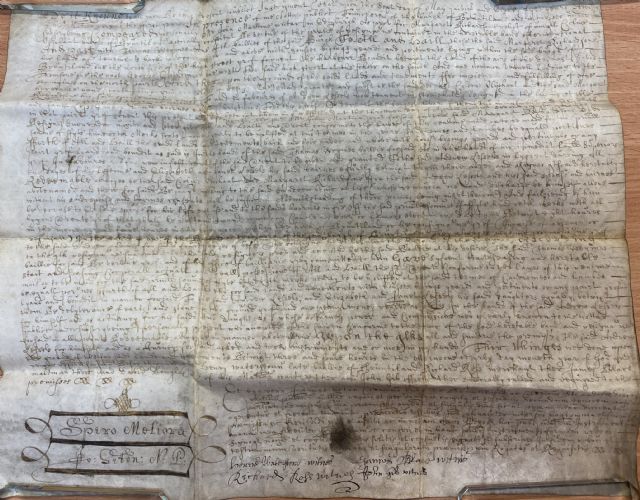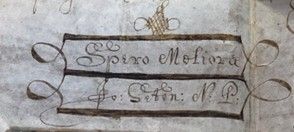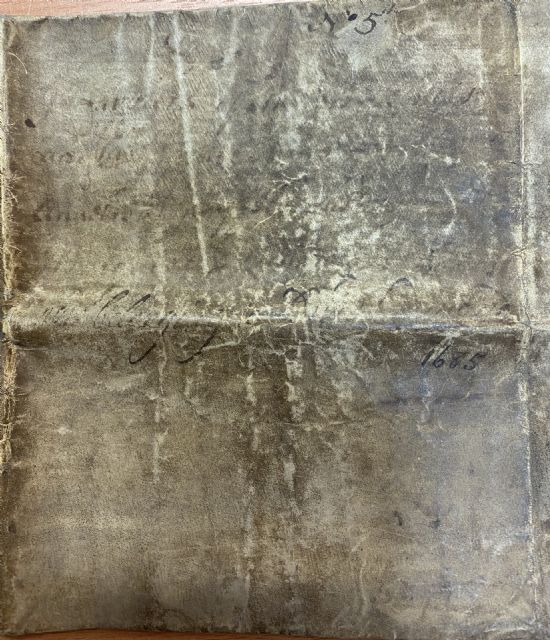1685

Agreement between Margaret Richardsone and Andrew Lessels
Summary
As the cover page was illegible, it has been diffcult to discern what type of deed this is.
This document concerns land belonging to Margaret Richardson, widow of Colin Oliphant (a Burgess of Burntisland). The land is on the north side of the High Street opposite the harbour, between the land of the late David Thomson on the east, George Gairden on the west, the High Street at the shore on the south and the common vennel leading to the sea mill on the north. (This is land on which a Sugar House was built almost a century later. The document shows that in the 17th Century the High Street extended further towards the harbour than it does today.)
Ten years previously, in 1675, Margaret Richardson and her husband had made a heritable bond in favour of Andrew Lessels, tenant in Stoniehall, and his spouse Christian Todd. A heritable bond was a type of security deed whereby the debtor (Mr Oliphant)undertook to repay and in security conveyed to the creditor (Mr Lessels) lands and annual rent, in this case of 500 Scots merks, (a merk or mark was worth 13 shillings and 4 pence Scots or 1 shilling and one and a half pence sterling}.[1]to be paid at Candlemass and Lammas. Being a heritable bond the right could be passed to Andrew’s daughters, Elizabeth and Janet. The bond contained a “precaries of resignation” meaning that Margaret Richardson or her husband could resume possession at any time, giving 40 days notice. It seems that the purpose of this present document was to convert what had been a grant under the precarium principle into an outright grant in favour of Andrew Lessels.
However, there are at least 2 other deeds between Andrew Lessels and Margaret Richardsone, namely a Inhibition in 1687 (transcribed) and a “Decreet of Adjunct” in 1689 against Andrew Lessels (Fife Council Archives (ref A/ATE/2/1)
The document is witnessed by Henry Waterstoun late bailie of Burntisland, Richard Ross merchant, James Black maltman and David Douglas one of his majesty’s waiters[2] and John Gib officer, and authorised by John Seton, Notary Public (see his signature below)
[1] Weights & Measures by D.R. Torrance
[2] Waiter = one who watches over or guards a person


The cover of the document

1685 cover

